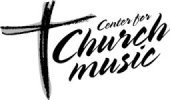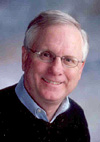Center For Church Music, Songs & Hymns

Recent articles
- Kids Choir Camp 2012: A Soldier of the Cross!
- Kids Choir Camp 2011
- Billy's Questions: Session 1
- How I Can Help
- The Song of the Cross
Great Hymns of the Faith CDs
Categories
- Church Musicians
- The Weight of Glory
- Be Prepared
- Singing Hymns
- Singing Lessons
- John Wesley on Singing
- Singing: A Call to Excellence
- Lay People
- Billy's Questions
- C.S. Lewis on Worship
- Kids Choir Camp
- A Song of Christmas
- Singing Hymns
- Knowing Christ
- Christmas Eve Truce
- Pastors
- Music
- Church Musician
- Worship
Our Author

Music & Worship
The Early Church: Singing Saints III
Let the word of Christ dwell in you richly, in all wisdom, teaching and admonishing one another in psalms and hymns
and spirituals songs…
Colossians 3:16
In the New Testament, there are 283 quotations from the Old Testament; 116 of them are from the book of Psalms alone! Jesus quoted from 24 Old Testament books, but His most prolific source was the Psalms, the hymnal of Israel.
Jesus, of course, not only quoted the Psalms, He sang them. For hundreds of years, the Jews, including Jesus, made the Psalter the centerpiece of their worship. Likewise, the early Jewish Christians made the Psalter a vital part of the Church’s worship.
But music in the Old Covenant was not limited to the Psalter, the Old Testament’s second most quoted book, Isaiah, is overflowing with song. Clearly, God presented much of His Word to the Israelites using music as the means of expression—and the early Church would do the same as well.
The proof text printed above is crucial to understanding how the early saints viewed music: Colossians 3:16 extols believers to sing "filled with the Word of Christ." Singing ignited the emotions, but the foundation for song was all about learning to understand the "Word of Christ."
For example, an early hymn fragment found in the writings of St. Paul is contained in Philippians 2:5-11. While we don’t have the musical record for the hymn (perhaps the music would have sounded quite similar to the Jewish melodies of the day) we do know that the text of the hymn is a deep and profound hymn of worship. It is a rubric for worship that proclaims Christ as Son of God, highly exalted by God the Father and deserving of worship from those "who are in heaven and on earth and under the earth."
It is clear then, that singing was serious business for those hardy saints, not only in Phillipi but also in all of the early Church. Their songs rehearsed the power and majesty of Jesus Christ, the Son of man and Son of God. The hymn in Philippians 2 begins with the exhortation to "pattern" oneself after Christ. The hymn then goes on to describe in beautiful, yet profound theological expressions, the nature of Christ’s deity and the Christian’s obligation to Him.
Those singing saints sang of Christ. Nothing else mattered. Combined with a new understanding of the Old Covenant Psalms, their New Covenant songs were filled with the power of Christ and literally turned their world upside down!
This methodology was not lost on the great Reformers of the 16th century. Singing helped spread Luther and Calvin’s Reformation message as well. In fact, a Jesuit priest complained that Martin Luther’s hymns had "damned more souls than all Luther’s sermons put together."
While the power of hymn singing in today’s Church may seem like a pale imitation of that dynamic, early Church, the "Word of Christ" can still ignite your worship through the singing of a hymn. Go to the website: Sing A Mighty Fortress or And Can It Be. With Christ as the object of your worship, your song-filled heart will resonate with the power of the Holy Spirit.
